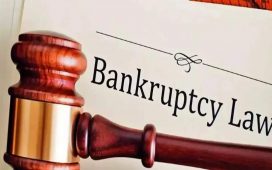Asian private investors have expressed anger and fury over the UBS deal agreed to save Credit Suisse which saw AT1s investments collapsing. A Singapore-based private banker told the Financial Times: “We haven’t slept since Sunday. People are completely gobsmacked.”
A banker at one of Singapore’s top private banks also told the paper wealthy investors were angry.
They said: “A lot of clients are in shock, they didn’t understand the writedown risk under certain scenarios. It is not mass selling but a fair few want to get out.”
Angelina Lai, chief executive of the Hong Kong unit of the wealth manager St James’s Place, told the FT her company had been asked about AT1s as recently as three weeks ago.
She said: “We advised against the individuals holding the asset class directly, based on the complexity of the product and our strong views of keeping a diversified investment portfolio that is risk managed and rewarded accordingly.”
The Bank of England joined the ECB Banking Supervision, the Single Resolution Board and the European Banking Authority in clarifying over UK creditor hierarchy in the event of insolvency on Monday.
They sought to reassure that common equity instruments, such as shares, are the first ones to absorb losses, after which AT1 bonds would be required to be written down.
READ MORE: Bank of England copies 2008 financial crisis tactic to ease turmoil
But Michael Hewson, chief market analyst at CMC Markets, said the market volatility “serves to reinforce concerns about these types of writedowns and any spillover effects on the rest of the banking sector”.
The Credit Suisse deal was announced on Sunday evening, as UBS agreed to pay around £2.7 billion for its former rival.
The deal was brokered by the same Swiss regulators who had on Wednesday said they would lend up to £45 billion to Credit Suisse to keep it afloat.
The bank has had problems for years but was pushed over the edge last week because of market jitters sparked by the failure of Silicon Valley Bank in the US, which was a mid-sized lender.
On Sunday, Swiss president Alain Berset said an “uncontrolled” collapse of Credit Suisse could have sent ripples across the world which could cause “incalculable consequences” in the international financial system.
The lender is seen as a systemically important bank whose collapse could spark widespread market turmoil.











